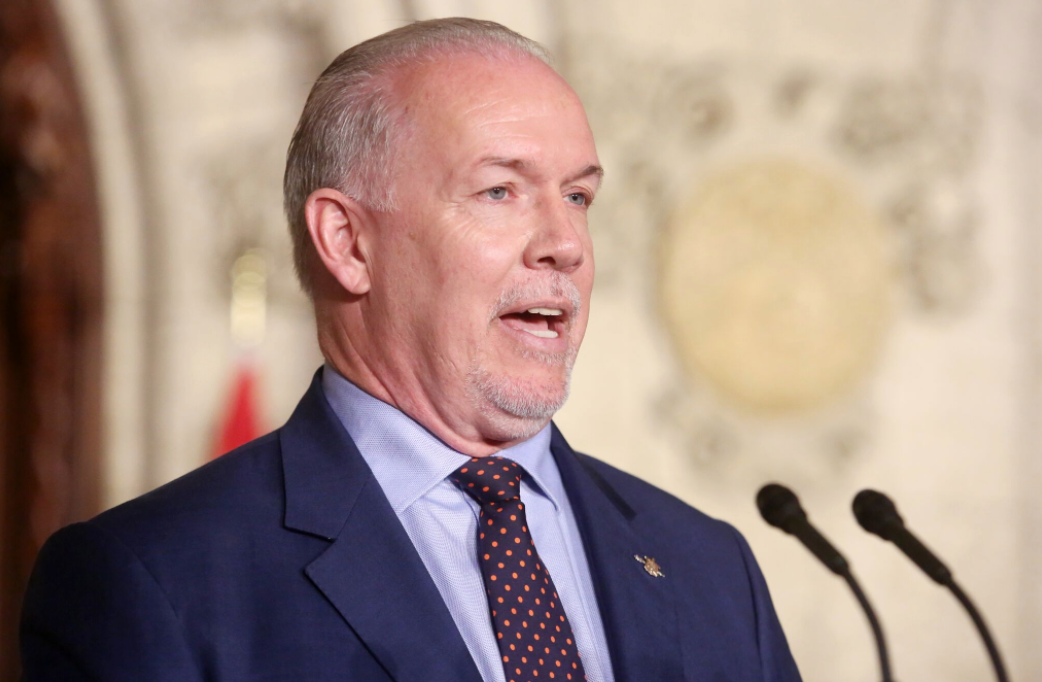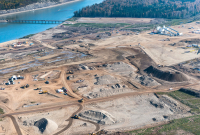Support strong Canadian climate journalism for 2025
Many British Columbians breathed a sigh of relief recently when Petronas pulled plans to build the Pacific Northwest LNG plant, meant to compress fracked gas for shipment to Asian markets.
Some economists were buoyed that the liquified natural gas industry has yet to materialize in B.C.. It has proven costly to citizens of other countries, such as Australia, which have gone full steam ahead on fracking and gas exports.
Environmental advocates hope the Petronas cancellation will help put B.C. on track to reach climate targets and will minimize expansion of fracking, which has serious potential health consequences for northeastern B.C. residents. Petronas is a Malaysian state-owned oil giant with a presence in more than 65 countries.
But it may be too early to let our guard down. Chevron Canada may still go ahead with its proposed LNG plant in Kitimat, on the northern coast of the province. Headquartered in Calgary, the energy company is operated by the California-based Chevron — a successor company of Standard oil that is active in more than 180 countries.
Perhaps it is time for B.C.'s new NDP government, which has yet to take a hard stance either for or against fracked LNG, to thoroughly examine whether it wants either of these companies active in B.C. Neither has a glowing record of dedication to human and/or environmental rights. Shouldn’t that be a prerequisite for companies that want to operate in or from B.C.?

Secrecy in Borneo
Petronas has a history of pushing gas projects through opposition of local people. In Malaysian Borneo, amid secrecy and counter to direct opposition from Indigenous people, it built a pipeline through pristine landscape, destroying traditional ways of life. In 2014 there was a catastrophic explosion at a brand new Petronas pipeline due to unstable soil.
This does not bode well for Indigenous peoples in B.C., like some houses of the Gitxsan Nation, which opposes pipelines through their unceded territory.
In 2015, The Vancouver Sun reported multiple problems on Petronas-owned oil and gas platforms in three major oil and gas fields off the Malaysian coast. Issues ranged from inadequate staff training and incompetence to severe corrosion in containers for pressurized gas and oil. Records showed that years, even decades, had passed without proper facility inspection.
Amnesty International came out against a Canadian deal with Petronas years ago, as the company supplied fuel to the Sudanese army which committed violent acts against civilians in Darfur.
Does the B.C. government really think having Chevron proceed in an industry which is fraught with environmental and First Nations rights issues will be any better?

Poisoned landscapes in Ecuador
Chevron has spent years refusing to pay court-awarded damages to villagers for poisoning landscapes in Ecuador. Billions of litres of toxic effluent were dumped from its mining operations into the rivers, resulting in the highest rates of childhood leukemia in the country, 130 per cent more frequent cancer deaths than elsewhere, and 150 per cent higher rates of miscarriages, according to locals and activists.
Studies in the International Journal of Occupational and Environmental Health, as well as the International Journal of Epidemiology also show an increase in some cancers, including childhood leukemia in those living close to the oil fields in the Amazon basin of Ecuador. Other studies do not show the same pattern; however, it is interesting to note that studies that do not find an association were undertaken by Exponent, a public firm that has made millions providing findings that defend industry from litigation regarding health, safety, and the environment.
In order to collect damages Ecuadorian villagers have pursued actions in courts around the world, from the U.S., Canada, Argentina and Brazil. But Chevron refuses to pay, as it does not hold assets in Ecuador. Courts in the U.S. have rejected an appeal to have the case heard in America, and are still waiting for responses from Brazil and Argentina. An Ontario court has ruled that villages can use Canadian courts to try to collect damages.
The Commission on Human Rights of the Philippines has argued that Chevron and other major fossil fuel companies have violated the country's human rights by contributing to climate change, which is plaguing the island nation with super-cyclones, floods, and ocean acidification. Tens of thousands of people have died due to these events; hundreds of thousands more have been displaced.
As approximately 90 companies, including Chevron, have contributed to two thirds of greenhouse gas emissions since the start of the industrial revolution, investing with Chevron seems risky as climate litigation becomes more frequent.
Lastly, if the point of having these companies operate in B.C. is to collect tax revenue, both companies have been threatened with being kicked out of Chad, a landlocked country in central Africa, until they pay their neglected taxes. This is not the definition of corporate responsibility.
British Columbia stands at a crossroads as it considers whether we will continue down the path to a dubiously lucrative LNG industry. Whatever industries B.C. invests in, a provincial government that is dedicated to human rights and a healthy planet should think hard about potential business partners.






Comments